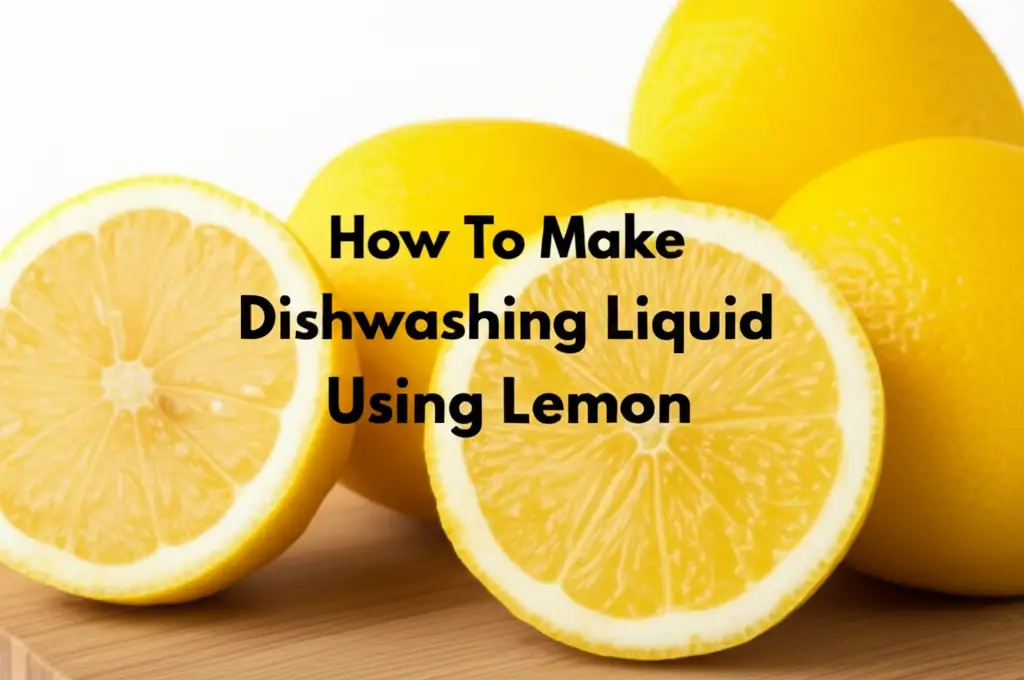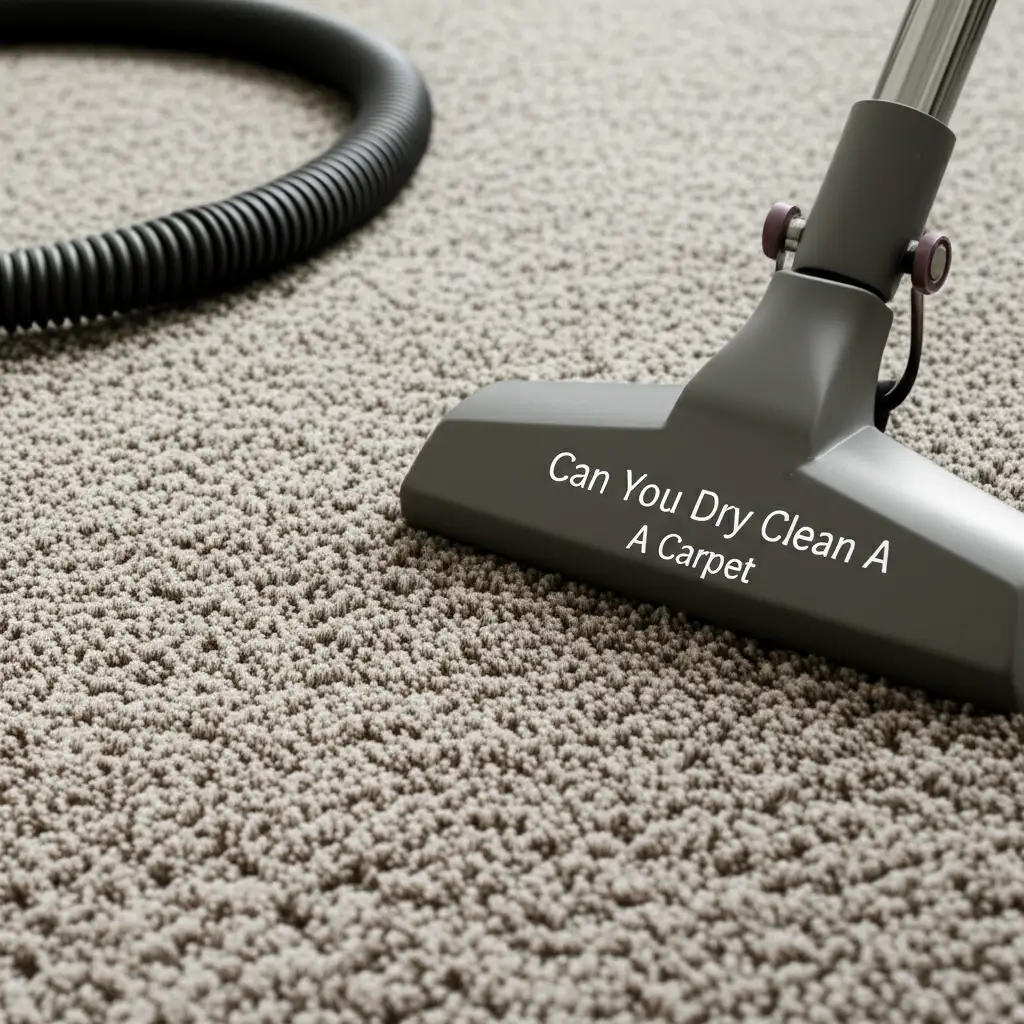· Elira Thomsen · DIY Home Cleaning · 16 min read
How To Make Dishwashing Liquid Using Lemon

Unlock Natural Cleanliness: Make Lemon Dishwashing Liquid at Home
Imagine a kitchen free from harsh chemicals, where every dish sparkles with the natural zest of lemons. Many people seek safer, more sustainable options for their homes. Learning how to make dishwashing liquid using lemon juice offers a refreshing alternative to store-bought products. This natural approach cleans effectively and leaves a pleasant, fresh scent.
This article guides you through crafting your own homemade lemon dish soap. We will explore the simple ingredients you need and provide a clear, step-by-step recipe. You will also discover the many benefits of using this natural cleaner, from its eco-friendly impact to its degreasing power. Get ready to transform your dishwashing routine with the power of lemons.
Takeaway
- Homemade lemon dishwashing liquid offers a natural, effective cleaning solution.
- It combines lemon’s degreasing power with gentle cleansing agents.
- Making your own soap reduces exposure to harsh chemicals and plastic waste.
- Simple ingredients like lemon juice, castile soap, and water create a powerful cleaner.
- Proper storage extends the shelf life of your natural dish soap.
You can make effective lemon dishwashing liquid by combining fresh lemon juice, liquid castile soap, and optional natural boosters like baking soda. This process creates a powerful, eco-friendly cleaner for your dishes, leveraging lemon’s natural degreasing and antibacterial properties. It offers a gentle yet effective solution for daily dishwashing tasks.
Why Choose Homemade Lemon Dishwashing Liquid?
Choosing to make dishwashing liquid using lemon juice brings many advantages to your home and the environment. I found this switch incredibly rewarding for many reasons. This natural option provides a clean that you can feel good about.
First, it is a safe option for your family. Commercial dish soaps often contain synthetic fragrances, dyes, and harsh chemicals. These ingredients can irritate skin or contribute to indoor air pollution. Homemade lemon dish soap uses simple, natural components. You control what goes into your cleaner, ensuring a non-toxic product for your kitchen. This is important for families with sensitive skin or allergies.
Second, homemade lemon dishwashing liquid is eco-friendly. It reduces your reliance on plastic bottles, lessening waste in landfills. The ingredients themselves are biodegradable. This means they break down naturally in the environment without harming waterways. Using lemons, a renewable resource, supports sustainable living practices. Your small effort contributes to a healthier planet.
Third, lemons possess incredible natural cleaning power. Lemon juice contains citric acid. Citric acid is a natural degreaser and disinfectant. It breaks down grease and grime effectively on dishes. The fresh, bright scent of lemon also helps to neutralize odors. This leaves your dishes smelling clean without artificial perfumes. You get sparkling clean dishes and a fresh kitchen aroma. It truly makes a difference in your cleaning experience.
Essential Ingredients for Your DIY Lemon Soap
Crafting your own lemon dishwashing liquid requires just a few simple ingredients. These components work together to create an effective and gentle cleaning solution. I always keep these items on hand for my homemade cleaners. Understanding each ingredient’s role helps you appreciate its power.
First, you need fresh lemons. Lemons are the star of this recipe. They provide the natural citric acid. This acid helps to cut through grease and grime on your dishes. Fresh lemon juice also imparts a wonderful, natural scent. You will need a good amount of juice, so pick ripe, juicy lemons. If you need help, you can learn how to squeeze lemon without juicer. Using fresh lemons ensures maximum potency and a pure fragrance.
Second, liquid castile soap is crucial. This is a concentrated, plant-based soap. It acts as the primary cleaning agent. Castile soap is biodegradable and non-toxic, making it safe for home use. It creates the lather needed to clean dishes effectively. You can find unscented castile soap, which allows the lemon scent to shine through. Choose a reputable brand for the best results.
Third, water helps to dilute the concentrated ingredients. Filtered or distilled water is ideal. This avoids adding minerals from tap water that could leave streaks or affect the soap’s consistency. Water also ensures the liquid flows well from a dispenser. It helps you control the thickness of your final product.
Finally, consider adding optional natural boosters. Baking soda can enhance the cleaning power. It is a mild abrasive that helps scrub away stubborn food bits. It also acts as a deodorizer. White vinegar is another excellent booster. It adds more degreasing power and helps to prevent water spots. These boosters are completely optional but can elevate your homemade dish soap to a new level.
Step-by-Step Guide: Crafting Your Lemon Dishwashing Liquid
Making your own lemon dishwashing liquid is a simple process. I found it quite enjoyable to create my own natural cleaning product. Follow these steps for a successful batch of DIY dishwashing liquid.
Gather Your Supplies
Before you begin, make sure you have everything ready. You will need:
- Fresh lemons (about 4-6, depending on size)
- 1 cup liquid castile soap (unscented works best)
- 1 cup filtered or distilled water
- Optional: 1 tablespoon baking soda or 1/4 cup white vinegar
- A saucepan
- A fine-mesh strainer
- A funnel
- A clean squeeze bottle or pump dispenser
Prepare the Lemon Concentrate
Start by extracting the lemon juice. Cut your lemons in half and squeeze out all the juice. Aim for about 1/2 to 3/4 cup of fresh lemon juice. You can use a citrus juicer or your hands. Be sure to remove any seeds and large pulp pieces. A clear juice provides a smoother final product.
Next, you will create a lemon concentrate. Pour the fresh lemon juice into a saucepan. Heat the juice over medium-low heat. Do not let it boil. Simmer gently for about 5-7 minutes. This step helps to intensify the lemon’s cleaning power and aroma. It also helps to slightly reduce the juice, making it more potent. Remove it from the heat and let it cool completely.
Mix the Ingredients
Once the lemon concentrate is cool, you can mix everything. Pour the cooled lemon concentrate into a large mixing bowl. Add the 1 cup of liquid castile soap to the bowl. Stir these two ingredients gently. You want to combine them without creating too many suds. Gentle stirring ensures a smooth mixture.
Now, slowly add the 1 cup of filtered or distilled water. Stir continuously as you pour. This helps to integrate the water evenly. If you are using baking soda, dissolve it in a small amount of warm water first. Then add this mixture to the bowl. If you are using white vinegar, add it directly. Continue stirring until all ingredients are well combined.
Bottle and Store Your Soap
Finally, transfer your homemade dish soap to a dispenser. Use a funnel to pour the liquid into your clean squeeze bottle or pump dispenser. This prevents spills and makes the process neat. Secure the cap or pump top tightly.
Your natural dish cleaner is now ready to use! Store it in a cool, dark place. Label your bottle clearly so you remember what it is. I find that a simple label makes my cleaning cabinet look organized. This easy recipe makes a great, effective lemon dishwashing liquid you can use daily.
Enhancing Your Homemade Dish Soap
Once you master the basic recipe for lemon dishwashing liquid, you can customize it further. I love experimenting with additions to boost performance and scent. These simple enhancements make your homemade dish soap even better.
Adding essential oils is a popular way to personalize your cleaner. While lemon already provides a fantastic scent, other oils can offer additional benefits. For example, a few drops of tea tree oil add extra antimicrobial properties. Peppermint oil provides a refreshing scent and can deter pests. Lavender oil offers a calming aroma and is also naturally antibacterial. Always use high-quality, pure essential oils. Add them after the soap has cooled to preserve their properties. Start with 10-15 drops for the entire batch and adjust to your preference.
Baking soda is a powerful natural additive. It boosts the cleaning efficacy of your DIY dishwashing liquid. Baking soda is a mild abrasive. It helps scrub away stuck-on food and grime more effectively. It also acts as a natural deodorizer. If you have particularly greasy pots or pans, a baking soda-enhanced soap will work wonders. You can add 1 tablespoon of baking soda directly to the mixture. Make sure it dissolves completely. This creates a slightly thicker, more potent cleaner.
White vinegar is another excellent booster. Vinegar contains acetic acid, which is a strong degreaser and disinfectant. It helps to cut through tough grease and leaves dishes streak-free. Combining vinegar with lemon creates a powerful duo for tackling stubborn residues. Add 1/4 cup of white vinegar to your mixture. Be aware that vinegar can react with baking soda, so do not add both at the same time in large quantities during the initial mixing. It is better to choose one or the other as a primary booster for stability.
Adjusting the consistency is also an enhancement. If your soap feels too thin, you can add a little more castile soap. If it is too thick, a small amount of water will thin it down. Experiment until you find the perfect texture for your dispenser. These small adjustments make your eco-friendly cleaning solution perfectly suited for your needs.
Storage and Shelf Life Tips for Natural Cleaners
Proper storage is key to extending the life of your homemade dish soap. Since your lemon dishwashing liquid contains natural ingredients and no artificial preservatives, it will not last as long as commercial products. I learned that proper storage prevents spoilage and keeps the soap effective.
First, use an airtight container for storage. A squeeze bottle with a tight-fitting cap or a pump dispenser works well. This prevents air exposure, which can lead to degradation. Air can introduce contaminants and cause the ingredients to break down faster. Glass bottles are ideal because they do not absorb scents or chemicals. If using plastic, ensure it is food-grade and BPA-free.
Second, store your natural dish cleaner in a cool, dark place. Heat and light can degrade the lemon properties and other ingredients. A pantry, cupboard, or under the sink cabinet are good spots. Avoid storing it near direct sunlight or heat sources like stoves. Consistent temperatures help maintain the soap’s stability and effectiveness over time.
Third, consider the shelf life. Homemade lemon dishwashing liquid typically lasts for about 2-4 weeks. This duration depends on the freshness of ingredients and storage conditions. The lemon juice is the most perishable component. If you notice any changes in scent, color, or consistency, it is time to make a fresh batch. A cloudy appearance or an off-smell are signs of spoilage. For more details on how long dishwashing liquid lasts, you can refer to this guide: How Long Does Dishwashing Liquid Last.
Finally, make smaller batches. Instead of making a very large quantity, consider preparing smaller amounts more frequently. This ensures you always have a fresh supply of eco-friendly cleaning solution. It also minimizes waste if a batch spoils before you use it all. Making smaller batches is a simple way to manage the shelf life of your natural cleaning products effectively.
Troubleshooting Common Homemade Soap Issues
Making your own lemon dishwashing liquid is generally straightforward. However, you might encounter a few common issues. Do not worry; I have faced some of these myself, and solutions are usually simple. Understanding how to troubleshoot keeps your homemade dish soap performing its best.
One common problem is the soap being too thin. If your DIY dishwashing liquid feels watery, it might not cling well to sponges or dishes. This often happens if you added too much water. To fix this, you can add a little more liquid castile soap. Pour in small increments, about a tablespoon at a time, and stir gently. Continue until you reach your desired consistency. Another option is to gently heat the mixture again. Let a small amount of water evaporate. Ensure you do not boil it.
Conversely, your soap might be too thick. Sometimes the mixture can become too gel-like, making it hard to dispense. This usually means you have too much castile soap or a very concentrated lemon juice. To thin it out, slowly add more filtered or distilled water. Add a tablespoon at a time. Stir well after each addition. Keep adding water until the soap reaches a pourable consistency. A pump dispenser needs a thinner consistency than a squeeze bottle.
Another issue can be a lack of suds. While homemade soaps typically produce less lather than commercial ones, you should still see some bubbles. If your lemon dishwashing liquid produces almost no suds, it might indicate an imbalance of ingredients. Ensure your castile soap is fresh and has not expired. Adding a tiny bit more castile soap can help. Also, check your water quality; hard water can sometimes inhibit lather.
Scent issues can also arise. If your soap does not smell fresh or has an off-odor, it usually means the lemon juice has started to spoil. As mentioned, lemon juice is perishable. If this happens, it is best to discard the batch and make a fresh one. Always use fresh lemons and store your soap correctly. Adding a few drops of lemon essential oil at the end can boost the scent if it fades.
Finally, separation of ingredients can occur over time. This is natural for homemade products without emulsifiers. If you see layers forming, simply give the bottle a gentle shake before each use. This redistributes the ingredients and keeps your natural dish cleaner effective. These simple fixes ensure your homemade soap consistently works well.
Safety and Usage Considerations
Using your homemade dish soap is generally very safe. However, there are a few important considerations. I always keep these points in mind when using my lemon dishwashing liquid. They ensure both effectiveness and safety for your household.
First, this natural dish cleaner is for handwashing dishes only. It is not suitable for dishwashers. The consistency and foaming action of homemade soap are different from commercial dishwasher detergents. Using it in a machine can create excessive suds. This can damage your dishwasher or leave a thick residue on dishes. It is crucial to understand the distinction. For more information, you can read about can you use dishwasher liquid in dishwasher. Always check product labels, whether homemade or store-bought, for appropriate usage.
Second, consider skin sensitivity. While natural, some people might be sensitive to lemon juice or essential oils. If you have very sensitive skin, you might want to wear gloves when washing dishes. If you experience any irritation, discontinue use. You can also try reducing the amount of lemon juice or essential oils in your next batch. Patch testing a small amount on your skin before widespread use is a good practice.
Third, rinse dishes thoroughly. Even though your eco-friendly cleaning solution is natural, always rinse your dishes well after washing. This ensures no soap residue remains. Proper rinsing helps to achieve sparkling clean dishes. It also ensures food tastes as it should, without any lingering soap flavor.
Fourth, keep the soap out of reach of children and pets. Although it is natural, it is still a cleaning product. Ingesting it could cause discomfort. Store your bottles securely, just as you would with any other household cleaner. A high shelf or a locked cabinet is ideal.
Finally, maintain cleanliness of your tools and bottles. When making a new batch, ensure all your mixing bowls, strainers, and dispenser bottles are thoroughly clean. Any lingering bacteria or residue can shorten the shelf life of your fresh lemon dishwashing liquid. Clean tools contribute to a cleaner, safer product. These simple precautions help you enjoy your homemade soap with confidence.
Frequently Asked Questions
Is homemade lemon dish soap as effective as commercial brands?
Homemade lemon dish soap can be very effective for daily dishwashing tasks. Lemon’s citric acid naturally cuts through grease and grime. Castile soap provides gentle cleaning power. While it may not produce as much suds as chemical-laden commercial brands, it cleans dishes thoroughly. It offers a powerful and natural alternative.
Can I use bottled lemon juice instead of fresh?
Using fresh lemon juice is always best for optimal results and scent. Fresh lemons provide the strongest natural degreasing properties and a vibrant aroma. Bottled lemon juice may contain preservatives or be less potent. If you must use bottled, choose one with no added ingredients for a purer soap.
How long does homemade lemon dishwashing liquid last?
Homemade lemon dishwashing liquid typically lasts for about 2 to 4 weeks. This shelf life depends on factors like ingredient freshness and storage conditions. Since it contains fresh lemon juice and no artificial preservatives, it is more perishable than store-bought options. Store it in a cool, dark place to extend its usability.
Is it safe for all types of dishes?
Yes, homemade lemon dishwashing liquid is generally safe for most dish types, including glass, ceramic, and stainless steel. It is a gentle cleaner. For delicate items like antique china or crystal, always perform a patch test first. As with any new cleaner, observe your dishes for any adverse reactions.
Can I add essential oils for scent?
You can absolutely add essential oils for an enhanced scent. While lemon provides a fresh aroma, oils like tea tree, peppermint, or lavender can boost the fragrance and offer additional benefits. Add about 10-15 drops of high-quality essential oil to your cooled mixture. This personalizes your eco-friendly cleaning product.
What if my liquid is too thin or too thick?
If your liquid is too thin, add a small amount more liquid castile soap, stirring gently until it thickens. If it is too thick, slowly add a bit more filtered water, stirring until it reaches your desired consistency. Adjusting consistency helps the soap dispense and perform better for your needs.
Conclusion
Creating your own lemon dishwashing liquid is a simple yet powerful step towards a more natural home. I truly believe that embracing DIY dishwashing liquid offers many benefits. You gain control over ingredients, reduce chemical exposure, and minimize your environmental footprint. The natural degreasing power of lemon, combined with gentle castile soap, provides an effective and refreshing cleaning experience for your dishes.
You now have a clear guide on how to make dishwashing liquid using lemon. You understand the essential ingredients, the step-by-step process, and tips for enhancing and storing your homemade soap. Troubleshooting common issues ensures your success. Embrace this sustainable habit. Your dishes will thank you, and so will the planet. Start crafting your fresh batch today and enjoy the natural clean.





